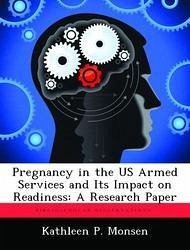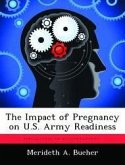Fear that the current United States military will become like the 'hollow force' of the late 1970s is one reason why readiness is a hotly debated issue. The end of the Cold War resulted in a 25 percent reduction in military personnel and significant decreases in defense budgets. Critics began to question whether the cuts were too much, too fast. Concurrent with these reductions, the roles and percentages of women in the military continued to increase. Would these demographic changes further exacerbate the readiness status of the military? Specifically, are pregnant military women less deployable than men, resulting in a negative affect on readiness? Through a review of the current literature and the use of two case studies, this paper attempts to identify the impact pregnancy has on the deployability of women. In the Marine Corps case study, the pregnancy rate is very low and one would expect there to be no affect on readiness and deployability. In the Desert Storm case study, the percentage rate of pregnancy is high enough to conclude there was an impact on readiness. In the first case, while statistically insignificant, the perceptual problems are very significant. In the second case, while statistically significant, in actual numbers, the impact was considerably less than that of men.
Hinweis: Dieser Artikel kann nur an eine deutsche Lieferadresse ausgeliefert werden.
Hinweis: Dieser Artikel kann nur an eine deutsche Lieferadresse ausgeliefert werden.








